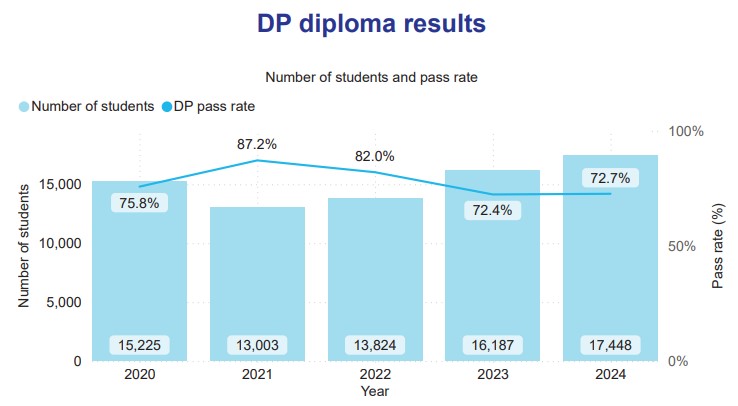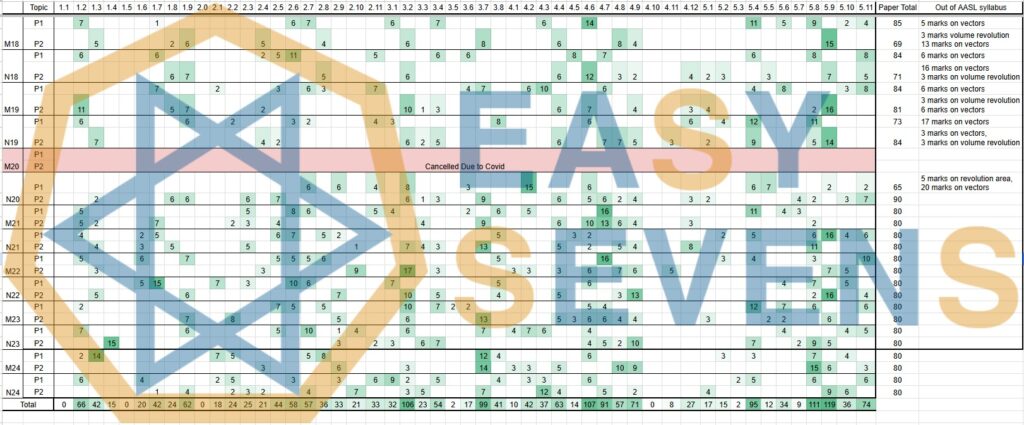Are you an International Baccalaureate (IB) student preparing for the May exams? It’s essential to plan your study schedule strategically to maximize your success. Many students wonder when the ideal time is to start studying for these rigorous exams. In this article, we will delve into this topic and provide you with valuable insights to help you determine the optimal time to begin your preparations.
Understanding the IB May Exams
Before we dive into the ideal time to start studying, let’s take a moment to understand the nature of the IB May exams. The International Baccalaureate is an internationally recognized educational program that offers challenging courses to students aged 16 to 19. The program aims to foster intellectual, personal, emotional, and social growth in students.
The IB May exams, also known as the Diploma Programme exams, are the culmination of the two-year IB program. These exams assess students’ knowledge and understanding across a wide range of subjects, including Mathematics, Sciences, Humanities, Languages, and the Arts. The exams are typically held in May, and they play a significant role in determining a student’s final IB diploma score.
Factors to Consider for Effective Study Planning
When determining when to start studying for the IB May exams, several factors come into play. Each student’s situation is unique, so it’s crucial to consider these factors to create a personalized study plan. Let’s explore these factors in detail:
1. Subject Difficulty and Personal Strengths
Different subjects within the IB program vary in complexity and the amount of time required for thorough understanding. Consider your personal strengths and weaknesses in each subject. If you find a particular subject challenging, it may require more time and effort to master. Identify the subjects that require extra attention and allocate your study time accordingly.
2. Study Habits and Learning Style
Understanding your study habits and learning style is crucial for effective preparation. Some students benefit from early, consistent studying, while others perform better with a more intensive “cramming” approach closer to the exam date. Reflect on your preferred study methods, whether you thrive with consistent daily study sessions or prefer focused bursts of concentrated learning. This awareness will help you design a study plan that suits your individual needs.
3. Other Commitments and Responsibilities
Consider your extracurricular activities, part-time jobs, and any other responsibilities you may have outside of your academic studies. It’s essential to strike a balance between your commitments to ensure you have sufficient time for both studying and personal well-being. Evaluate your schedule and identify potential time slots that you can allocate for studying without overwhelming yourself.
4. Previous Knowledge and Preparation
Assess your existing knowledge and preparation level for each subject. If you have a solid foundation in a particular subject, you may require less time to review and revise it. On the other hand, if you feel less confident in a subject, it’s essential to start studying earlier to fill any knowledge gaps and build a solid understanding.
5. Study Resources and Support
Consider the availability of study resources, such as textbooks, online materials, practice exams, and support from teachers or tutors. Ensure you have access to the necessary resources to aid your learning and revision process. Having ample study materials at your disposal can enhance your understanding and help you gauge your progress effectively.
Now that we have identified the significant factors to consider let’s explore the recommended timelines for starting your IB May exam preparations.
Recommended Timelines for IB May Exam Preparation
It’s important to note that the timelines provided are general recommendations. Every student is unique, and you should adjust these timelines to align with your personal circumstances and preferences. Here are the suggested timelines to consider:
1. 12-18 Months Prior to the Exams
Familiarize yourself with the IB subject syllabi: Review the syllabi for each subject you will be examined on. Understand the learning objectives, assessment criteria, and the topics covered. This will give you a clear overview of what to expect in each subject and help you identify areas that require more attention.
Develop a study plan: Create a comprehensive study plan that outlines your study goals, timelines, and study techniques. Break down your subjects into manageable chunks and allocate study time for each. A well-structured study plan will keep you organized and ensure you cover all the necessary topics.
Start building foundational knowledge: Begin studying the foundational concepts in each subject. Focus on grasping the fundamental ideas and principles that will form the basis of your understanding as you progress. This early start will lay a solid groundwork for more in-depth studying later on.
2. 6-9 Months Prior to the Exams
Dive deeper into subject content: As you approach the six-month mark, intensify your studying efforts. Dive deeper into the subject content, exploring more complex topics and connecting concepts across different areas. Use textbooks, online resources, and consult with your teachers to gain a more comprehensive understanding of each subject
Practice with past papers: Start incorporating past papers into your study routine. Solve previous years’ exam papers to familiarize yourself with the exam format, time constraints, and question types. Analyze your answers and identify areas where you need improvement. This practice will also help you manage your time effectively during the actual exams.
Seek guidance from teachers: Consult your subject teachers for clarifications on challenging topics or concepts. They can provide valuable insights, offer additional resources, and guide you in the right direction. Take advantage of their expertise and make the most out of their support.
3. 3-6 Months Prior to the Exams
Focus on revision and consolidation: Allocate more time for revision and consolidation of your knowledge. Review the topics you have previously covered, paying attention to areas where you struggled or made mistakes. Use flashcards, mind maps, and mnemonic techniques to reinforce your understanding and memorize key information.
Create a study group or partner: Collaborate with classmates or find a study partner to share knowledge and study resources. Discussing concepts and explaining them to others can deepen your understanding of the subject matter. Additionally, studying with others can provide motivation, accountability, and a fresh perspective on difficult topics.
Take mock exams: Simulate exam conditions by taking timed mock exams. This will help you gauge your preparedness and identify areas that require further improvement. Analyze your performance, identify patterns of mistakes, and adjust your study plan accordingly.
4. 1-3 Months Prior to the Exams
Fine-tune your understanding: Focus on fine-tuning your understanding of complex topics and addressing any remaining knowledge gaps. Seek clarification from teachers or tutors on challenging areas. Practice solving more advanced problems and exercises to strengthen your problem-solving skills.
Review exam strategies and techniques: Familiarize yourself with effective exam strategies, such as time management techniques, question analysis, and structuring your responses. Knowing how to approach different question types and allocate your time wisely can significantly improve your performance in the exams.
Prioritize self-care and well-being: As the exams approach, it’s crucial to prioritize your well-being. Maintain a healthy lifestyle, get enough sleep, eat nutritious meals, and engage in activities that help you relax and recharge. Taking care of your physical and mental well-being will enhance your focus, concentration, and overall performance during the exams.
Conclusion
The optimal time to start studying for the IB May exams varies for each student. Consider factors such as subject difficulty, personal strengths, learning style, and other commitments to create a study plan that suits your individual needs. Starting early, around 12-18 months prior to the exams, allows for comprehensive understanding and revision. However, it’s crucial to strike a balance and avoid burnout. Adjust your study plan as needed, seek support from teachers and peers, and prioritize your well-being throughout the preparation period. With effective planning and consistent effort, you can position yourself for success in the IB May exams.
Frequently Asked Questions (FAQ)
While it’s important to start studying early, it’s equally crucial to strike a balance. Starting too early, such as more than 18 months in advance, may lead to burnout or excessive stress. It’s recommended to begin your preparations around 12-18 months prior to the exams to allow for a thorough understanding of the subject matter without overwhelming yourself.
Starting your preparations just a few months before the exams can be challenging, as the IB curriculum is extensive and requires time for thorough understanding and revision. However, it’s not impossible to achieve good results with focused and intensive studying. It’s advisable to allocate more study hours and adopt effective study techniques to make the most out of the limited time.
It depends on your learning style and preferences. Some students prefer studying one subject at a time to maintain focus and avoid confusion, while others find it beneficial to study multiple subjects simultaneously to establish connections and see the bigger picture. Experiment with both approaches and determine which one works best for you.
Staying motivated can be challenging during the long study period. Here are a few strategies to help you stay motivated:
- Set achievable short-term goals and reward yourself when you achieve them.
- Break down your study sessions into smaller, manageable tasks.
- Find a study routine that works for you and stick to it.
- Join study groups or find a study partner for support and accountability.
- Remind yourself of your long-term goals and the benefits of obtaining a good IB diploma score.
Remember, motivation can fluctuate, but discipline and consistency are key to success.




